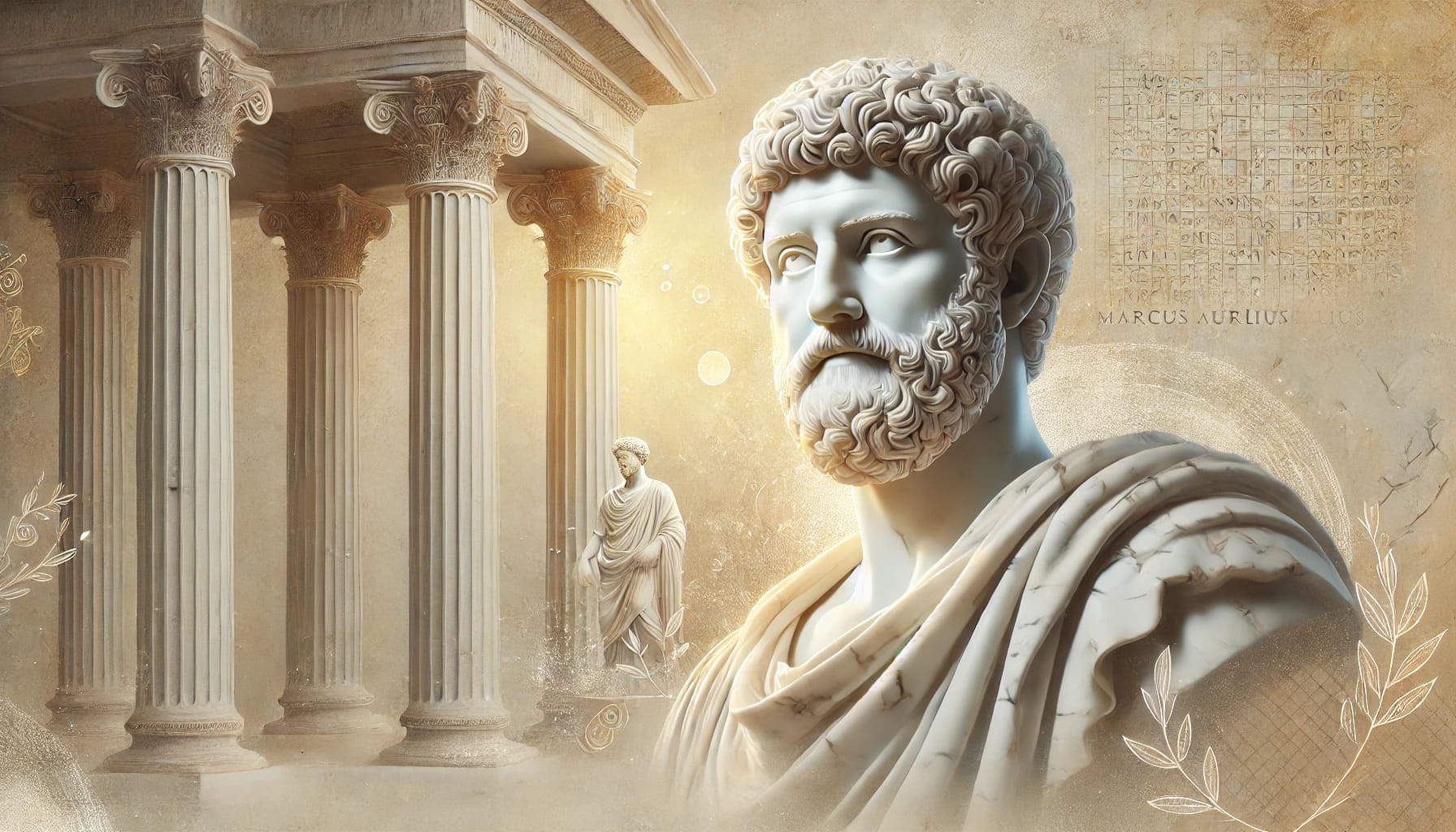When people ask, “What is the meaning of stoic?” they often picture someone who is calm, resilient, and unaffected by hardship. The word “stoic” originates from Stoicism, an ancient Greek philosophy founded in Athens by Zeno of Citium in the early 3rd century BCE. But to truly understand this philosophy and the meaning of being stoic, it’s essential to explore the core principles of Stoicism, define Stoicism itself, and consider the contributions of key figures like Epictetus, Marcus Aurelius, and Seneca.
Definition of Stoic and the Origins of Stoicism
To define Stoicism, we look at its fundamental purpose: Stoicism is a philosophy that teaches the development of self-control, rationality, and inner peace as a way to handle life’s challenges. The word “stoic” stems from the “Stoa Poikile” or “painted porch,” where Zeno and his followers would gather to discuss and practice philosophical teachings. The philosophy quickly spread across Greece and Rome, becoming a practical guide for leaders, soldiers, and everyday citizens. Defining stoic individuals involves recognizing their ability to endure pain or adversity without complaint, as they understand that much in life lies beyond their control.
Key Concepts in Stoicism
A central concept in Stoicism is the “dichotomy of control.” According to Stoic teachings, some things are within our control (our thoughts, emotions, and actions) and others are not (external events, other people’s actions, or the past and future). Stoicism encourages focusing only on what we can influence and accepting everything else as it is, a mindset captured in the modern interpretation of a “stoic” personality. By distinguishing between what can and cannot be changed, Stoics strive to live free of unnecessary stress or turmoil.
Another key aspect of Stoicism is the practice of virtue. The Stoics believed that virtue—comprising wisdom, courage, justice, and temperance—is the highest good. Living a virtuous life, in alignment with one’s values and nature, is what ultimately leads to inner peace. This concept of virtue also contributes to the definition of stoic as someone who remains ethically steadfast, rational, and resilient.
Influential Figures in Stoicism
The influence of Stoic philosophy grew with figures like Epictetus, a former slave who became a revered teacher, and his work continues to define stoicism for many. Epictetus taught that our reactions to events are within our control, even when events themselves are not. Another influential figure, Seneca, a Roman statesman, explored how Stoic ideas could be applied to wealth, success, and personal relationships, offering timeless guidance on facing adversity and dealing with emotions.
Perhaps the most famous Stoic is the Roman Emperor Marcus Aurelius, whose book, “Meditations,” reflects on the nature of human existence, the impermanence of life, and the importance of compassion. Aurelius’s writings embody the definition of stoic resilience and wisdom, exemplifying how Stoicism can be a source of strength and wisdom even under the heaviest burdens of leadership.
Modern Relevance of Stoicism
Today, people turn to Stoicism as a powerful tool for managing stress, achieving personal growth, and leading a meaningful life. The meaning of stoic in a modern context still aligns with ancient principles: it describes a person who faces life’s inevitable hardships with resilience and composure. Whether dealing with professional challenges, personal struggles, or even global crises, the Stoic philosophy remains relevant, providing a practical framework for living with purpose and inner peace.
In essence, the meaning of being stoic goes beyond mere emotional restraint; it reflects a way of life rooted in rational thinking, ethical living, and a profound acceptance of what lies beyond our control. The definition of stoic is thus a testament to human resilience—a legacy that remains as relevant today as it was over two millennia ago.

